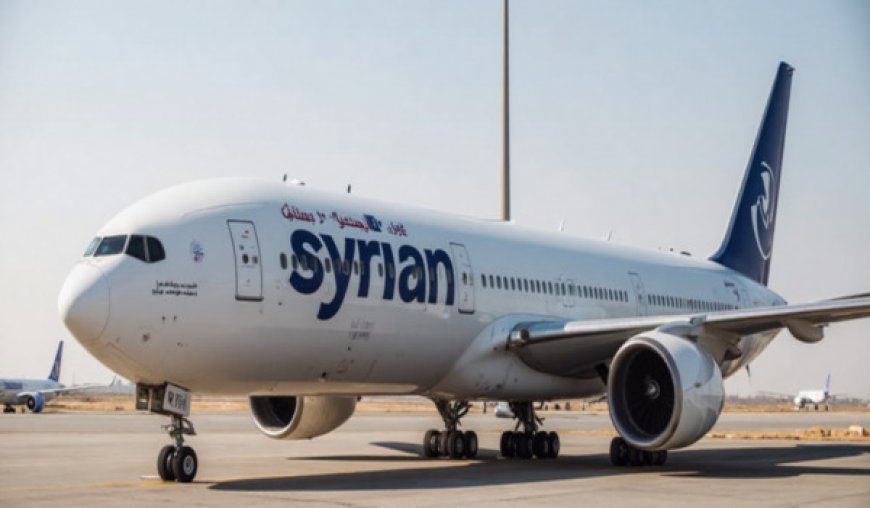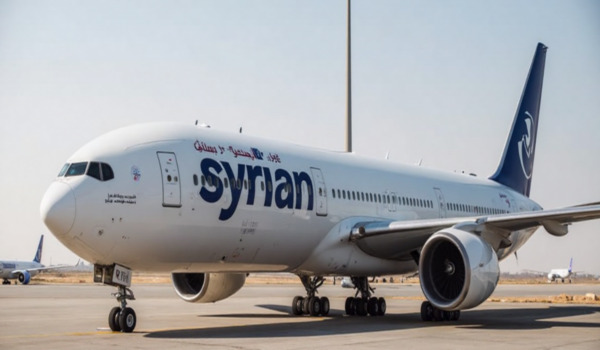Syria Unveils Four Billion Dollar Aviation Plan to Revitalize Infrastructure, Expand Airport Capacity, and Modernize Syrianair Fleet for Global Connectivity: New Update


Syria has announced a significant four billion dollar investment aimed at revitalizing its aviation sector, with a focus on rebuilding and modernizing key infrastructure, including Damascus International Airport, and expanding its airport capacity to accommodate growing demand. The plan also includes modernizing the fleet of Syrianair, the national carrier, with up to 10 new Airbus A320 aircraft. This comprehensive initiative is designed to improve Syria’s global connectivity by addressing critical infrastructure challenges, increasing flight frequency, and ensuring more efficient and reliable air services, making it a key step in the country’s post-conflict recovery and economic revitalization.
Revamping Damascus International Airport
Syria’s primary international gateway, Damascus International Airport, has faced extensive challenges throughout the country’s conflict. Key roads leading to the airport have often been blocked due to security issues, severely limiting air travel and causing several international airlines, including Emirates and Qatar Airways, to suspend their services to Syria.
The airport’s situation worsened when Israeli airstrikes targeted both Damascus and Aleppo airports in 2022 and 2023, causing considerable damage to the infrastructure. Despite these setbacks, the airport has been restored each time, with international flights resuming in January 2024, including a Qatar Airways flight to Doha. This marked a hopeful return to global connectivity for Syria.
In response to the need for a more modern and efficient airport, Syria has secured $4 billion in funding for the airport’s reconstruction. A multi-phase plan is being executed by a consortium that includes Qatar’s UCC Holding and Turkish firms like Cengiz İnşaat, Kalyon İnşaat, and TAV Tepe Akfen. The project will expand the airport’s capacity to 31 million passengers annually and improve surrounding infrastructure, ensuring better road access. This revitalization is a crucial step in restoring Syria’s aviation connections with the rest of the world.
Expanding and Modernizing Syrianair’s Fleet
As part of its efforts to rejuvenate its aviation industry, Syria has committed to investing $250 million in up to 10 new Airbus A320 aircraft for Syrianair. The airline currently operates a small fleet of six planes, several of which are aging, with some Russian-made models over 40 years old. These older planes, along with some A320s that are over 30 years old, have posed significant reliability challenges for the national carrier.
The introduction of new Airbus A320s will modernize Syrianair’s fleet and provide a competitive advantage in the regional aviation market. Known for their fuel efficiency and advanced features, the A320s are well-suited to address the airline’s growing needs. These new aircraft will replace outdated models, and it’s expected that they will help the airline expand its services and offer more frequent and reliable flights.
While the full impact of these new aircraft on Syrianair’s fleet remains to be seen, they will be a crucial asset for the airline. Given the current challenges in maintaining a modern and reliable fleet, these additions will significantly enhance Syrianair’s capacity to service regional and international routes.
Meeting Growing Demand for Air Travel
There has been a noticeable rise in demand for air travel to and from Syria, driven largely by the country’s large expatriate population. Syrians who left the country during the civil war are now eager to return, visit family, or reunite with loved ones. Many of these individuals are living in neighboring countries such as Turkey, Lebanon, Jordan, and beyond, and their desire to reconnect with Syria is creating strong demand for air travel.
With this growing demand, Syrianair faces the opportunity to expand its operations. However, the airline’s limited fleet and capacity have meant it has been unable to fully meet the needs of travelers. The situation has resulted in high flight prices, making air travel inaccessible for many Syrians wishing to return or visit. The expansion of the fleet, along with improvements to Damascus International Airport, will help the airline better serve these growing needs.
Expanding Regional and International Routes
Syrianair’s immediate priority will likely be expanding its regional network to countries with large Syrian expatriate populations, such as Turkey, Lebanon, and Jordan. These countries have strong ties to Syria, and demand for flights from these locations is expected to remain high. Syrianair will need to increase its flight frequency to these destinations to meet the growing need for travel.
Moreover, Syrianair previously operated flights to several European cities, including London, Frankfurt, and Madrid, before sanctions and restrictions limited its international operations. With the European Union’s recent decision to lift the ban on Syrianair, there is potential for the airline to reintroduce European routes, offering increased connectivity between Syria and Europe. This would not only cater to the large Syrian diaspora but also attract international tourists and business travelers to the country.
However, the airline will need to tackle several operational hurdles to fully capitalize on this demand. The aging fleet and high operational costs are significant barriers, and Syrianair must address these issues to remain competitive. Furthermore, the airline must ensure that ticket prices are kept affordable for a broader range of travelers.
Syria has unveiled a four billion dollar plan to revitalize its aviation sector, focusing on rebuilding Damascus International Airport, expanding its capacity, and modernizing Syrianair’s fleet with new Airbus A320s to enhance global connectivity. This initiative aims to boost Syria’s post-conflict recovery and strengthen international air travel.
A Path to Recovery and Growth
Syria’s plan to revitalize its aviation sector through investments in airport infrastructure and fleet modernization signals a new era for the country’s air travel. While there are still challenges ahead—particularly regarding political stability and economic conditions—the country’s efforts to rebuild its aviation industry offer a ray of hope for the future.
With improved infrastructure, expanded fleet capacity, and increased demand for travel, Syrianair has the opportunity to grow its operations and provide more reliable air services. The revival of the aviation sector will not only connect Syrians with their homeland but will also play an essential role in Syria’s broader reconstruction process. If successful, these efforts will restore Syria’s place in the global aviation market, offering new opportunities for its citizens and visitors from around the world.
The post Syria Unveils Four Billion Dollar Aviation Plan to Revitalize Infrastructure, Expand Airport Capacity, and Modernize Syrianair Fleet for Global Connectivity: New Update appeared first on Travel And Tour World.






